The country of Sri Lanka is home to diverse cultures and people due to its colonial past. Thus the capital city, Colombo, is home to many European-style buildings and architecture. National Museum of Colombo There is one such place in Sri Lanka, which is as wonderful in appearance as it is in action. Read on to know every little detail about the National Museum of Colombo that will help you in your Sri Lanka trip.
About National Museum of Colombo
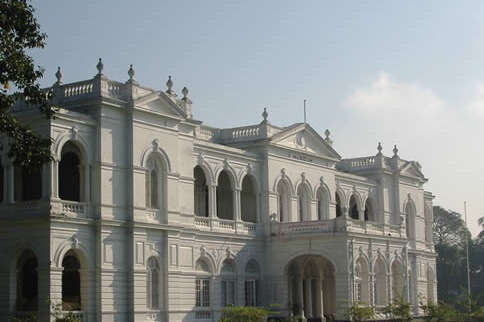
Also known as the National Museum of Sri Lanka, this museum is housed in a two-storey building. In front of it is a huge, lush, well-maintained, lush green lawn full of banyan trees. There is also a statue of Buddha meditating in the lobby of the museum. In fact, this statue dates back to the 4th century, making it one of the best-preserved statues of Buddha in the country. This statue, considered a masterpiece by experts, adds to the beauty of the museum.
Must read: Top 6 Honeymoon Places in Colombo for a Romantic Date
National Museum of Colombo: Important Information
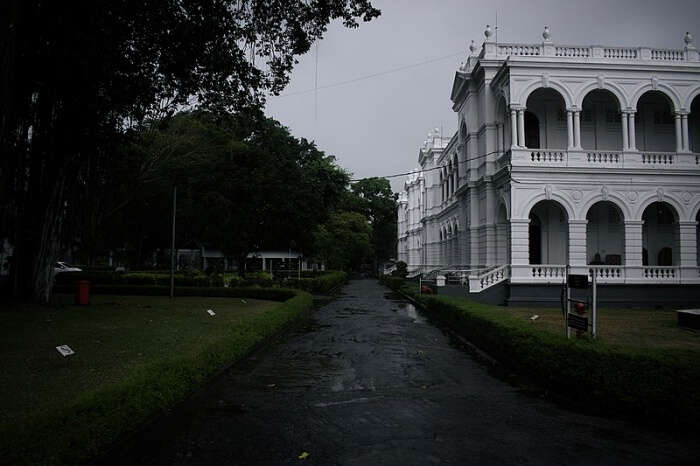
National Museum of Colombo opening hours are 9 am to 5 pm. However, it remains closed on public holidays. The entrance fees to the National Museum of Colombo vary greatly, it is better to buy tickets for both museums, as you will have to pay significantly more if you buy separate tickets.
For SAARC citizens: INR 500/-
for foreigners: INR 30/-
Read suggestions: 45 Best Places to Visit in Colombo That Will Make Your Sri Lankan Stay Blissful
National Museum of Colombo: Historical Importance
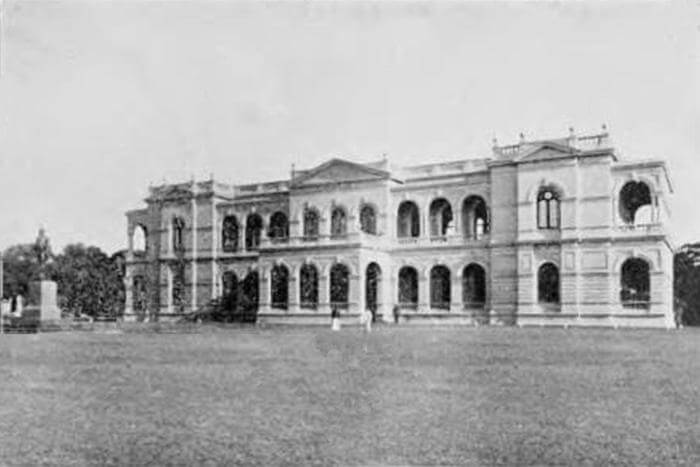
The National Museum of Colombo was first established in 1877 by Sir William Henry Gregory, the British Governor of Ceylon. The museum was built in the Italianate style by PWD architect JG Smither and displays many artefacts showcasing the country’s natural and cultural past. The National Museum in Colombo was built under Vapchi Marikar, who was also the builder of other government buildings of that era such as the General Post Office in Colombo, the Old Town Hall in Pettah, the Clock Tower and the Victoria Arcade.
Read suggestions: Top 7 Water Sports in Colombo That Will Thrill You
Artifacts on display at the National Museum of Colombo
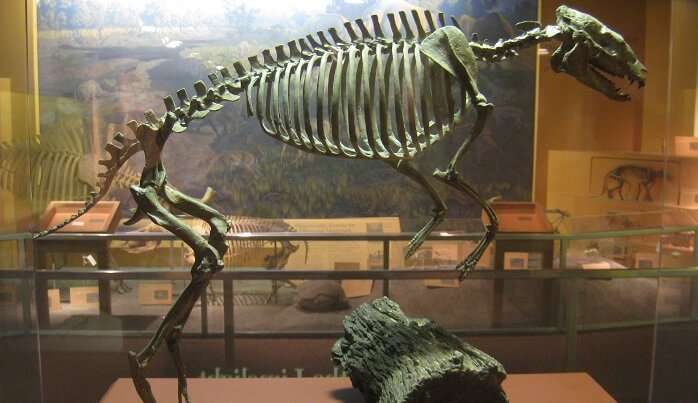
The highlight of the museum is the crown jewel and throne of the last king of Kandy, which was returned by the British to the Sri Lankans. The beauty of these royal properties is so awe-inspiring that when these artefacts were first displayed in 1934, a crowd of about 750,000 people gathered to see them. In the museum you will also find a huge collection of masks and puppets.
National Library Museum
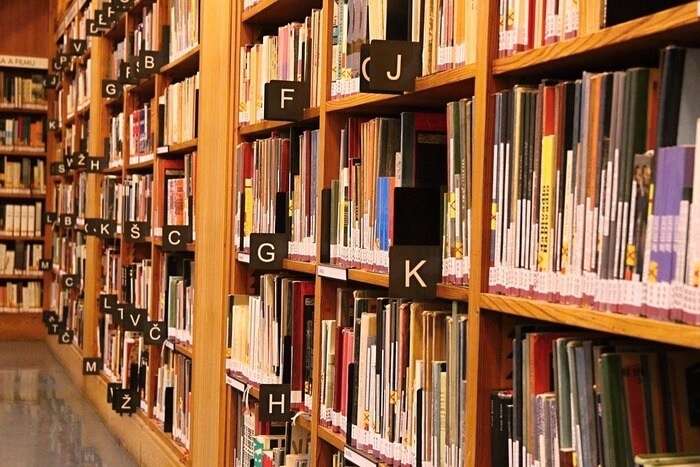
image Source
The extensive National Museum Library also operates since 1877. Actually, this library was started seven years ago in 1870 under the name of Government Oriental Library. It is currently the largest legal depository in the country. It has published many local publications over the past 133 years. The library also houses many palm leaf manuscripts written in different languages years ago on various subjects such as astrology and folklore.
Read suggestions: Take a safari in Colombo to spend some time in the jungle and cherish the rare creatures
National Museum of Natural History
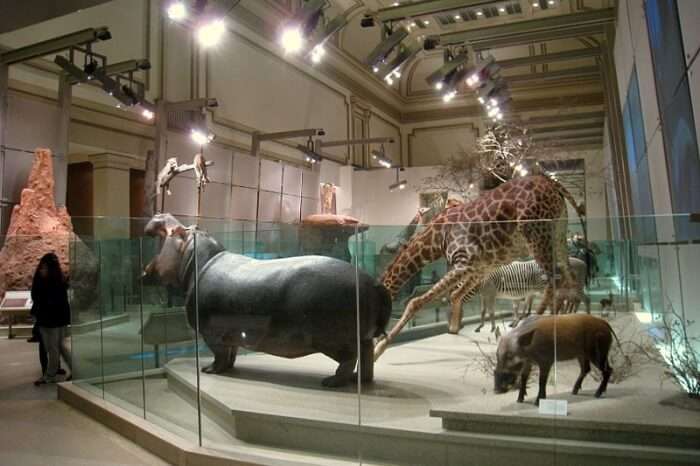
The National Museum is also home to a vast collection relating to the natural history of the island. The entire collection is displayed in a separate building in the same complex known to all as the National Museum of Natural History Colombo. This is the only museum in the country to display various forms of nature. It was established in 1986 and its galleries contain exhibitions of prehistoric cave paintings, Jurassic-period fossils, over 5000 specimens of various mammals as well as a variety of plants and animals native to the Sri Lankan island. You’ll also find a collection of various rocks among other exhibits showcasing the country’s natural history.
Other museums in Colombo
Sri Lanka has a strong culture of museums and art patronage. That’s why there are many museums in and around Colombo that you must visit. Here is a glimpse of the top museums in Colombo:
1. Dutch Museum
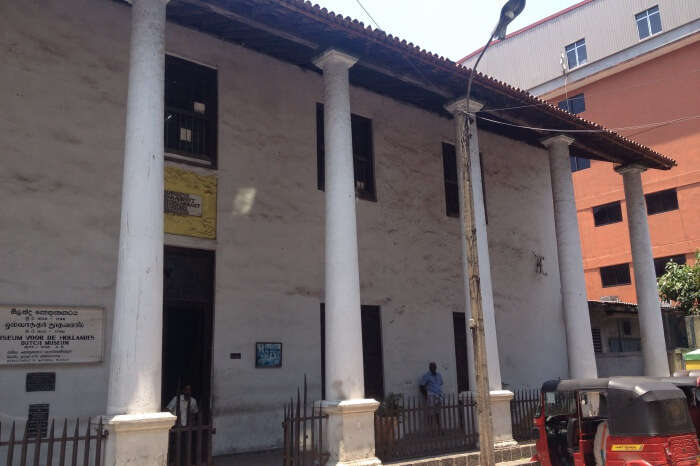
Another building from Sri Lanka’s colonial past, this Dutch museum was the residence of the Dutch Governor during the seventeenth century. Here you will find many pieces, furniture and other objects dating back to the Dutch colonial era, preserved over the years. This museum is located in Colombo itself.
Read suggestions: 7 Best Restaurants in Colombo to Enjoy Authentic Sri Lankan Culinary Delicacies
2. Ceylon Tea Museum
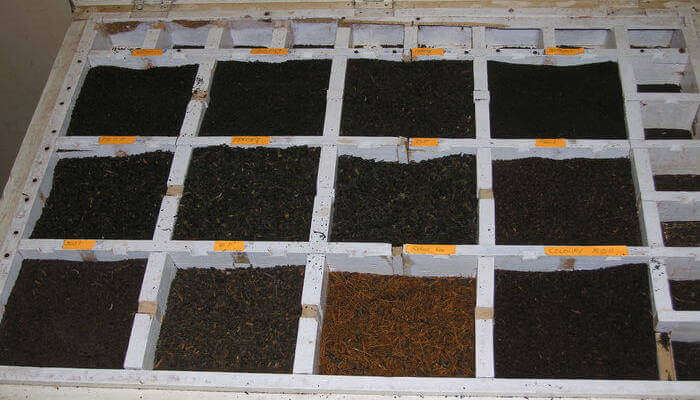
Located in Hantana, this tea museum is a one-stop place to witness the beauty of tea making. It houses many machines, paintings and other objects displaying the history of the tea industry in Sri Lanka. The country is the second largest exporter of tea, which makes the story of the tea industry in Sri Lanka all the more interesting.
Read suggestions: 7 Adventure Places in Colombo for Exciting Holidays
3. Kandy National Museum
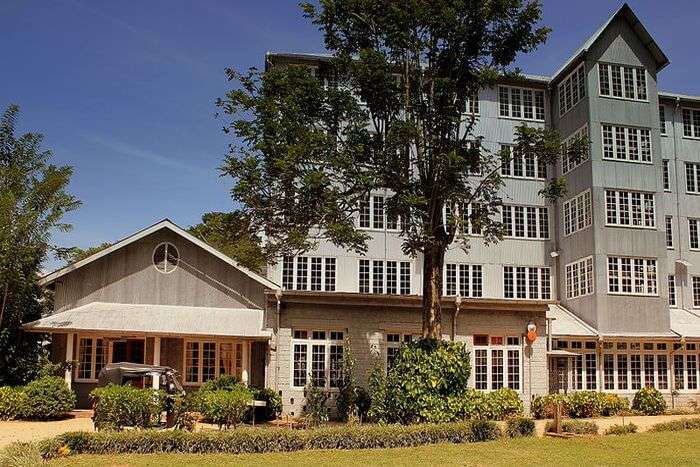
More than 5000 objects are displayed in this museum, which was once the queen’s residence. The building was built in the traditional Kandyan architectural style and houses various objects displaying the history and culture of Kandy (17th – 19th century).
read ahead: Top 5 Colombo Beaches That Must Be On Every Traveller’s Bucket List
Are you planning a trip to Sri Lanka? Don’t forget to visit the National Museum of Colombo to learn about the rich past of the Land of the Gods.
People also read:
Museums in Kathmandu, Museums in Kerala, Museums in Sri Lanka
Are you looking to book an international holiday?
Book memorable holidays on TourTravelHotels with 650+ verified travel agents for 65+ domestic and international destinations.




